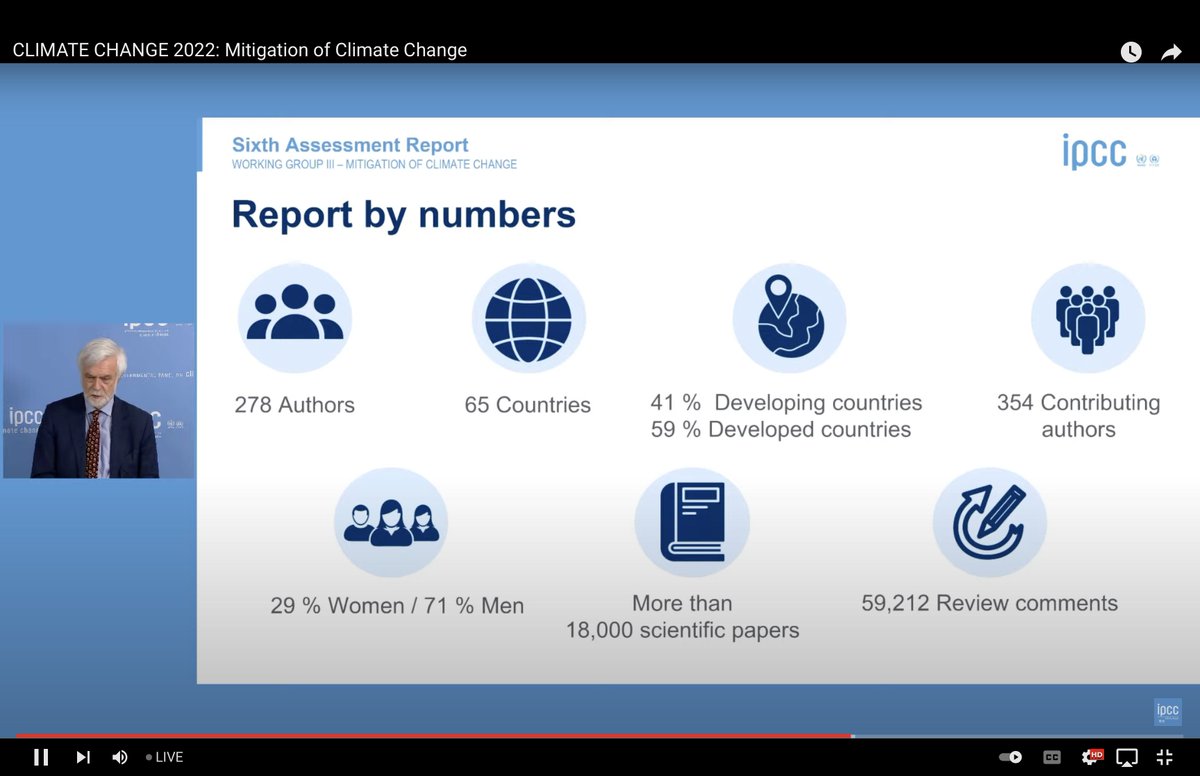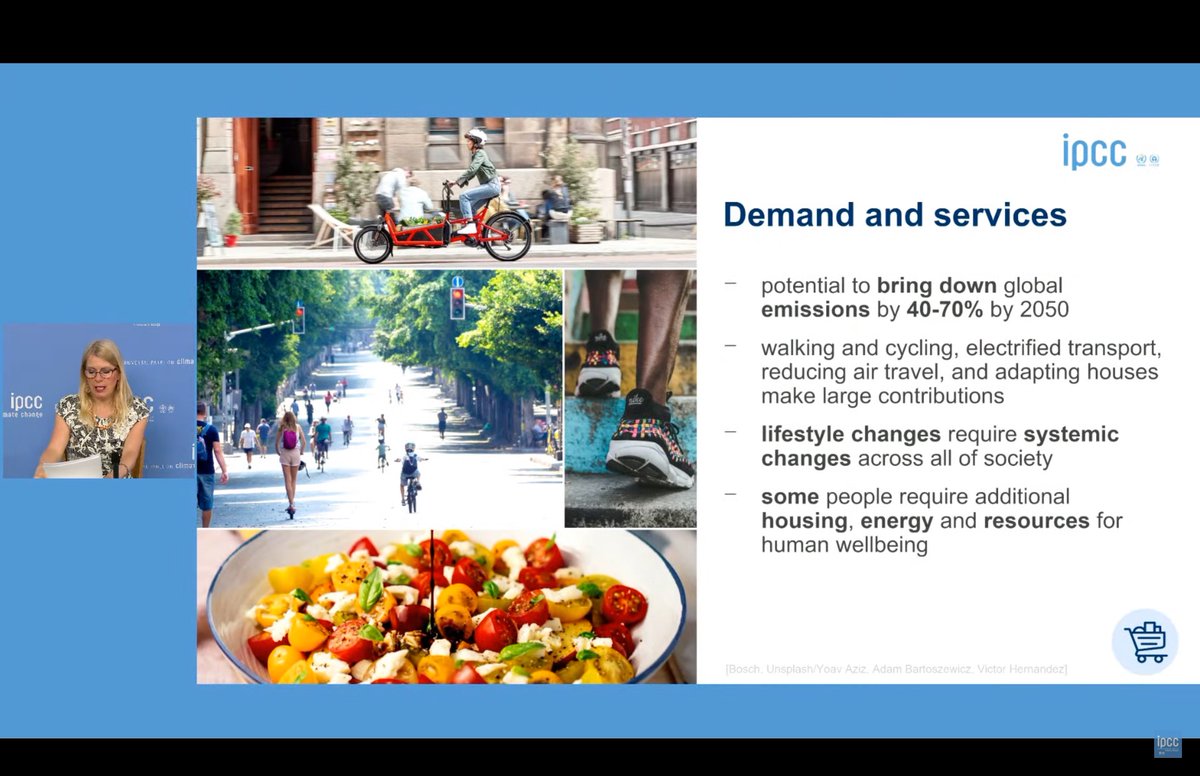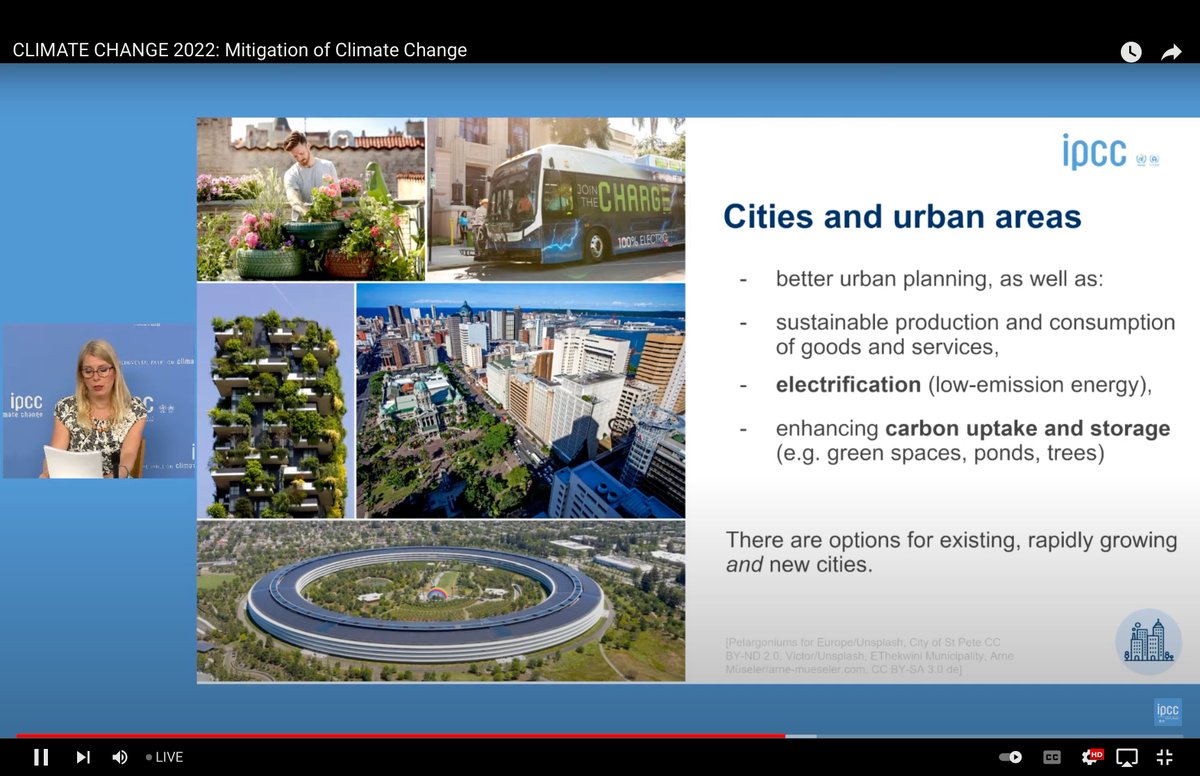
"A litany of broken climate promises, a file of shame cataloguing empty pledges that put us on fast track to an unlivable world & climate disaster. This is what science tells us will result from our current energy policies." @antonioguterres 👏🔥
#IPCC #ClimateReport presser 1/n
#IPCC #ClimateReport presser 1/n
https://twitter.com/IPCC_CH/status/1510998128224317448
"Government and business leaders are saying one thing and doing another. Simply put, they are lying. Climate scientists warn we are close to tipping points that could lead to irreversible, cascading impacts." @antonioguterres
#IPCC #ClimateReport presser 2/n
#IPCC #ClimateReport presser 2/n
"Current climate pledges mean 14% increase in emissions. We need 45% cut by 2030. The dangerous radicals are not activists, but countries investing in new fossil fuel infrastructure, which is moral and economic madness." @antonioguterres 💚
#IPCC #ClimateReport presser 3/n
#IPCC #ClimateReport presser 3/n
"If you live in a big city or the countryside, if invest in the stock market, if you care about justice, I'm talking to you. Demand renewable energy is introduced now, at speed and scale, & an end to all fossil fuel subsidies."
@antonioguterres💚
#IPCC #ClimateReport presser 5/n
@antonioguterres💚
#IPCC #ClimateReport presser 5/n
We need global efforts for climate mitigation, because Africa, South Africa have had major land use emissions, says Petteri Taalas @WMO
#IPCC #ClimateReport presser 6/n
#IPCC #ClimateReport presser 6/n
This report completes the full picture of the #ClimateCrisis. #Climate change is here + now, causing huge disruptions. This #ClimateReport tells us we're still not doing enough to cut emissions, says @andersen_inger. Half measures will not halve GHGs by 2030.
#IPCC presser 7/n
#IPCC presser 7/n
The #IPCC tells us we have the knowledge + tech to rapidly shift from fossils; from deforestation to restoration; supporting nature; green and clean cities; + behavior change to address the demand side, says @andersen_inger.
#ClimateReport presser 8/n
#ClimateReport presser 8/n
Lead #IPCC author Jim Shea presents the latest #ClimateReport, thanking authors.
"We are definitely not on track to limit warming to 1.5°C. Unless there are immediate and deep reductions across all sectors, 1.5°C will be beyond reach."
9/n


"We are definitely not on track to limit warming to 1.5°C. Unless there are immediate and deep reductions across all sectors, 1.5°C will be beyond reach."
9/n



Some good news: Some countries are decreasing emissions at the rate needed to limit warming to 2°C;
solar and wind are growing. Jim Shea #IPCC #ClimateReport 10/n

solar and wind are growing. Jim Shea #IPCC #ClimateReport 10/n


Current emissions projected to warm 3.2°C. Limit to 1.5°C requires global GHGs peak latest 2025, reduced 43% by 2030. Methane needs to be reduced about 1/3. "almost inevitable we will temporarily exceed 1.5°C of warming", but can return later in century. #IPCC #ClimateReport 11/n
"The temperature will stabilise when we reach net zero carbon dioxide emissions." Must do this by early 2050s for 1.5°C, by early 2070s for 2°C, alongside deep, sustained reductions in other gases. Jim Skea #IPCC #ClimateReport 12/n 



"In every sector, there are options available to at least halve GHGs and limit warming to 1.5°C.
Energy sector = 1/3 of all emissions. Decentralize, local energy network, not based on fossils.
@DianaUrge #IPCC #ClimateReport 13/n
Energy sector = 1/3 of all emissions. Decentralize, local energy network, not based on fossils.
@DianaUrge #IPCC #ClimateReport 13/n

Demand (lifestyle/behavior) can improve health & has "untapped potential to lower GLOBAL emissions by 40-70% by 2050" alongside policy, tech, infrastructure. Biggest levers: switch to walk/cycle; EVs; reduce air travel; plant-based diets. @DianaUrge #IPCC #ClimateReport 14/n
"Wealthier individuals have the highest potential for reductions, as investors, consumers, professionals, and role models." @DianaUrge cites @kristiansn89 et al. high-impact #ClimateAction at #IPCC #ClimateReport press conference (wecanfixit.substack.com/p/your-top-5-c…) 

Transport: most important is reducing demand. Then, EVs + zero carbon electricity (depends on decarbonising power sector). Aviation + shipping are harder to decarbonise; need low-emissions fuels. @DianaUrge #IPCC #ClimateReport presser 16/n 

Cities account for 2/3 of consumption-based emissions; need better urban planning, sustainable consumption, electrification, + enhanced carbon storage. Buildings can be net zero 2050 if act now, w/ ambitious policy (efficient design)
@DianaUrge #IPCC #ClimateReport presser 16/n

@DianaUrge #IPCC #ClimateReport presser 16/n


Industry: about 1/4 global emissions. Net zero is challenging; must use materials efficiently + innovate. @DianaUrge #IPCC #ClimateReport presser 17/n 

To counterbalance hard-to-eliminate emissions (ag, aviation, some industrial) requires CO2 removal: remove from atm, store in land, ocean, soil. Will be essential for net zero. Need agreed methods to measure, report, verify.
@DianaUrge #IPCC #ClimateReport presser 18/n
@DianaUrge #IPCC #ClimateReport presser 18/n

Protecting & restoring forests, wetlands, ecosystems, can reduce, remove, store CO2. But land storage cannot compensate for delayed reductions in other sectors. Land can only do so much @DianaUrge #IPCC #ClimateReport presser 19/n 

Financing must be 3-6x higher by 2030 to limit warming to 1.5-2°C. This is possible w/ existing global capital, but closing the gap is tough for developing countries.
Ramón Pichs-Madruga #IPCC #ClimateReport presser 20/n
Ramón Pichs-Madruga #IPCC #ClimateReport presser 20/n

Existing policies are effective. WE SHOULD USE THEM. Use economy-wide policy packages, not individual instruments. Govt needs to build consensus among society. Use + develop tech, need benefit/risk analysis + engage public. Ramón Pichs-Madruga #IPCC #ClimateReport presser 21/n 



Climate mitigation goes hand-in-hand with achieving #SDGs. #JustTransition can accelerate climate action + co-benefit sustainability. Note sustainability conflicts around land-- manage w/ policies, investments, partnerships. Ramón Pichs-Madruga #IPCC #ClimateReport presser 22/n 



"Climate change is result of more than a century of unsustainable energy and land use and consumption. We can create a fairer and more liveable world. we know what to do, how to do, not it's up to us to act." Jim Shea, #IPCC #ClimateReport presser 23/n
What suggests 1.5°C is feasible, asks @adamvaughan_uk. Skea: laws of physics + chemistry tell us it's possible to limit warming to 1.5 or 2°C, as govts have promised to do, but it's clear it won't be biz as usual to get there. #IPCC #ClimateReport presser 24/n
At what date will it become impossible to meet 1.5°C, no matter what we do?
Skea: report is very clear we need to take action now, or 1.5°C may be physically impossible. We need to get on with this now, or 1.5 will slip beyond reach.
#IPCC #ClimateReport presser 25/n
Skea: report is very clear we need to take action now, or 1.5°C may be physically impossible. We need to get on with this now, or 1.5 will slip beyond reach.
#IPCC #ClimateReport presser 25/n
.@KateAronoff: are #fossilfuel infrastructure expansions in line w/ 1.5 or 2°C?
@DianaUrge: $1-4 TRILLION is already stranded in fossil assets that must shut down to meet 1.5 or 2°C. More fossils will either break climate or break the bank.
#IPCC #ClimateReport presser 26/n
@DianaUrge: $1-4 TRILLION is already stranded in fossil assets that must shut down to meet 1.5 or 2°C. More fossils will either break climate or break the bank.
#IPCC #ClimateReport presser 26/n
Emissions would have been 3-10% higher than today without existing climate policies. We're slowing the growth of GHG emissions. Challenge is now to step up the pace of action. Skea, #IPCC #ClimateReport presser 27/n
what about misinformation and greenwashing, asks @amywestervelt at #IPCC #ClimateReport presser
@DianaUrge: climate promises haven't been kept, emissions not on track, but we see increased political will. Need transparency, monitoring, verification. (Did not address misinfo)
28/n
@DianaUrge: climate promises haven't been kept, emissions not on track, but we see increased political will. Need transparency, monitoring, verification. (Did not address misinfo)
28/n
How does pandemic emissions drop of 5-6% compare to what's needed for 1.5°C?
@DianaUrge says #IPCC #ClimateReport shows options to improve our lives + health while decreasing emissions- not austerity like lockdowns. But pandemic increased inequality, debt- barrier to action.29/n
@DianaUrge says #IPCC #ClimateReport shows options to improve our lives + health while decreasing emissions- not austerity like lockdowns. But pandemic increased inequality, debt- barrier to action.29/n
"The currently rising oil prices will be just a blip. Oil prices will be independent of a net-zero path, our data support that," says #IPCC chair Lee. #ClimateReport presser 30/n
• • •
Missing some Tweet in this thread? You can try to
force a refresh



